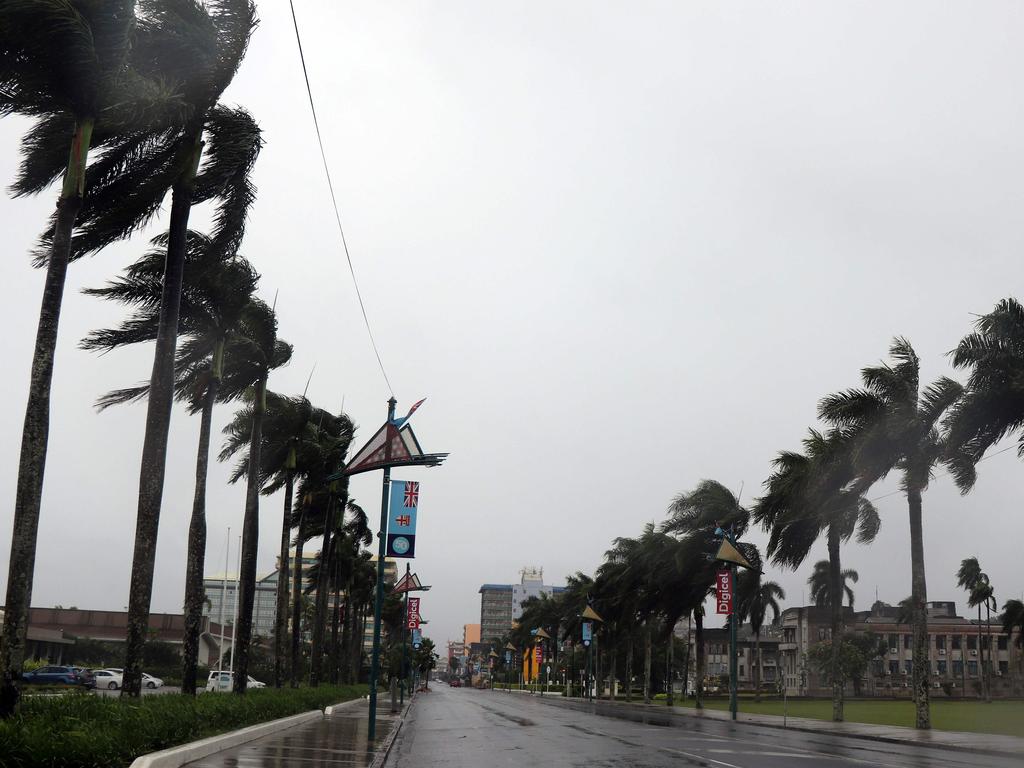Catch me if you can: speed matters in e-commerce
The quicker the delivery is, the more likely a consumer will jump online instead of jump in their car.

When Peter Sauerborn is asked how fast an online retailer could potentially deliver a package from the warehouse to a shopper’s front door he shoots back with the only response you would expect from an executive engaged in the cutthroat competitive among Australia’s legion of online stores.
“Probably best to say as fast as possible. But it is a trade-off. Customers want really competitive prices and ideally also very fast shipping. So it is all about finding the right balance of price and convenience and the convenience includes fast shipping,” he told The Weekend Australian.
Such is the arms race among the players, from Amazon to a simple website owned by a corner store, that delivery must be lightning fast. And the quicker that delivery is, the more likely a consumer will jump online than jump in their cars.
“It is delightful when you order something on Sunday afternoon and it arrives Monday.
“So we strive with our footprint in Australia, which makes it a challenging environment to deliver fast in every location. But I would say customers are delighted when they receive a product in two or three days, customers can get used to that, and that then unlocks new perceptions on how they can think of e-commerce as part of their portfolio of shopping options.
“I think now people think twice of jumping in the car and running off to the shops.”
The newly appointed chief executive of one of Australia’s oldest and largest online retailers, Catch, Mr Sauerborn is keenly aware of the results expected from him by not only shoppers demanding the world at their feet, and almost instantaneous delivery, but also his ultimate boss, Wesfarmers CEO Rob Scott and the shareholders of the Perth-based conglomerate that paid $230m for Catch last year.
The New Jersey-born Mr Sauerborn joined Catch in May just as the COVID-19 pandemic was surging in Australia, triggering a huge ramp-up in online activity as shoppers stuck at home turned to their devices and smart phones to fulfil their shopping needs.
For the 10 years before that, Mr Sauerborn, whose first job in e-commerce was building and leading an online flower delivery business, was the general manager for Amazon Marketplace. He sees himself now as playing the part of plucky David at Catch, up against the giants like his former employer.
“It is a lot of fun playing the David and Goliath game, I guess. I am David, we are the small guy right. The thing that is interesting is that it is earlier days here in Australia. Amazon has their playbook and they are going to try that playbook here.
“We are Australian-owned and operated, and we have got a different set of assets to partner with at Wesfarmers and these really strong retail brands that Wesfarmers has. So we are not going to try to go head to head and match them exactly in the exact same game; we are trying to come up with our own version of e-commerce and omni-channel that resonates with Australian consumers.
“And so we will play a slightly different game.”
That different kind of game has proved a success for Catch and Wesfarmers. Wesfarmers CEO Mr Scott made his bid for Catch in June 2019, more than six months before the world first learned of the destructive COVID-19 outbreak, and at a time when the fairly new Wesfarmers boss was stringing together a number of deals to put his mark on the conglomerate.
Around that time Mr Scott had made a $1.5bn tilt at rare earths miner Lynas and a $776m takeover bid for lithium company Kidman Resources.
But with a price tag of $230m for the then loss-making Catch, the acquisition stood out as a very unusual Wesfarmers deal, given it was in retail (Wesfarmers had just the year before demerged Coles to lessen its exposure to the retail sector), was a pure tech company and was not profitable.
At the time the latest financial results showed Catch lost $4.3m in fiscal 2018, down from a loss of just over $17m in 2017.
However, in 2018 revenue did rise more than 40 per cent to $262m and within six months of Wesfarmers gaining control of Catch the coronavirus pandemic would hit to put a rocket under online retail sales and the valuation of online retailers. In a trading update in November, Wesfarmers revealed Catch’s sales increased more than 114 per cent for the financial year to the end of October.
Catch has probably doubled in value through COVID-19 to make it one of Wesfarmers’ best recent investment deals.
“I have been in the e-commerce business for 15 years now, it is my 14th holiday season, and from my experience in the US what I have learned is that shoppers will inevitably start to shift a portion of their spend online,” Mr Sauerborn said.
“Naturally the majority of their spend is still traditional retail but with a compelling offer there is an inevitable mix and e-commerce is a big part of that.”
Mr Sauerborn agrees with many retail analysts and observers that the COVID-19 pandemic has accelerated the shift to online, with some suggesting it has helped the sector leapfrog years.
“This has been a big accelerator, no doubt about that, and (Wesfarmers’) focus in acquiring Catch was to really add it to the portfolio and really increase the way customers can shop and add convenience to their shopping,” he said.
“And really it starts with understanding their needs and then trying to delight them every time we do business with them, like with fast and easy shipping. We want to always encourage them to join our Club Catch with free shipping on all purchases from retail in-stock businesses, as well as offer other incentives. We want to have them ideally download the app to make it really convenient.
“What I have seen, not just in the US but other markets all around the world, is when you get the formula right, the convenience and the selection, and the speed of shipping and reliability and trust, the consumers will get comfortable with it and start adding it into their mix of shopping.”
Reflecting on the Wesfarmers conglomerate model, Mr Sauerborn said there are benefits to Catch networking into other parts of the business, such as its retail brands like Bunnings, Kmart and Target.
“From the standpoint of (Wesfarmers’) divisional autonomy as it relates to our business, there are pros and cons. Pro is that it is really great to have the flexibility and their support and capital investment, but then the flexibility to run your own business.
“It really sees the opportunities in front of you.
“Obviously Rob Scott and the board have been very supportive in the opportunities of finding points of opportunity and co-ordination. So while we do run independently we also do look for synergies that are win-win across the company.”
He said the founders of Catch, Gabby and Hezi Leibovich, did a tremendous job getting Catch to the state that they did, but it now required investment to scale to the next level.
“And we see a mass of opportunities in front of us, and certainly Wesfarmers, not only with the acquisition but they are going to put growth capital in the form of an investment in people and capabilities to build out our software.”
There will also be a leap forward to update its chains of warehouses as Catch looks to automation and robotics to keep it competitive.







To join the conversation, please log in. Don't have an account? Register
Join the conversation, you are commenting as Logout